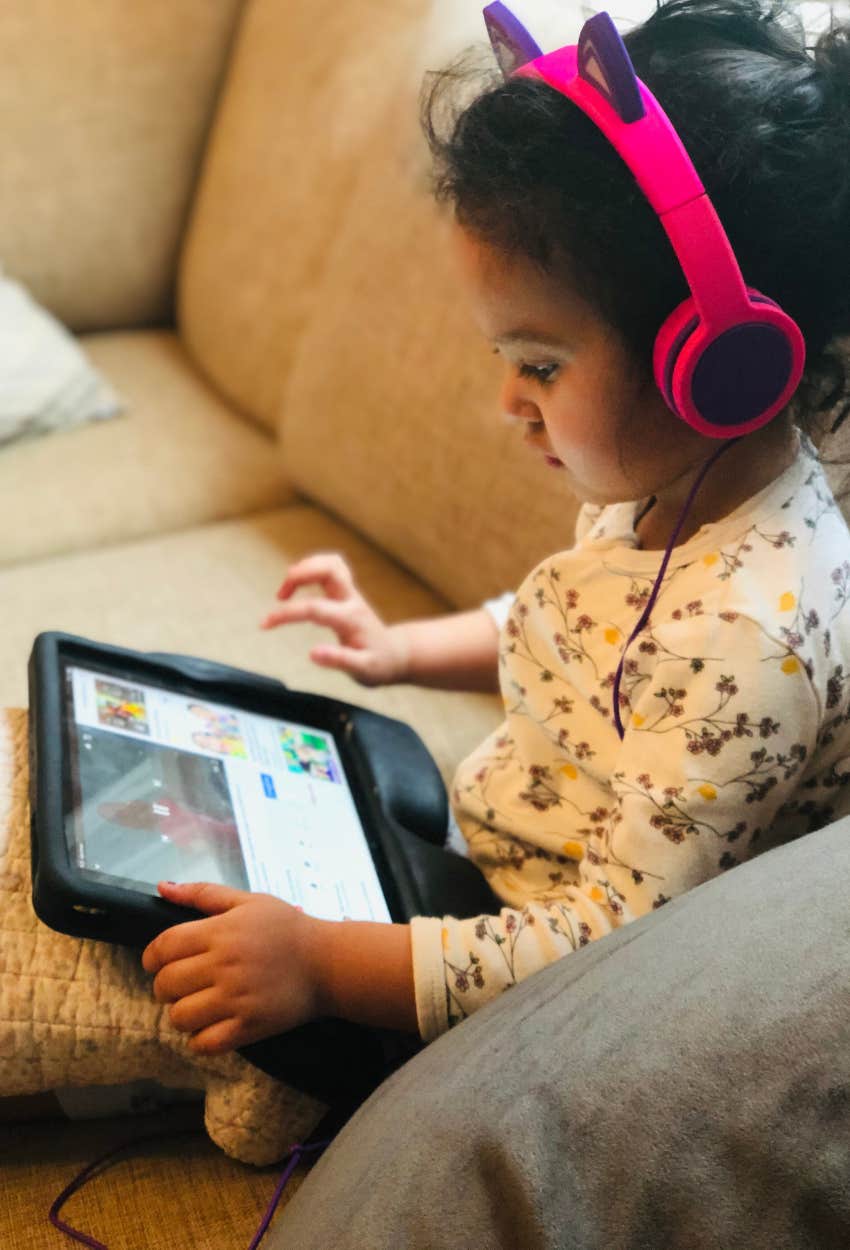Former Education Student Shares The 11 Dream-Crushing Things She Witnessed While Working In Childcare That Made Her Change Her Major
"They don't know anything and if you tell them they won't remember."
 Oksana Kuzmina | Shutterstock
Oksana Kuzmina | Shutterstock If you're like most people, you probably look at the state of the education system and think, "I could never be a teacher these days." The problem is, a growing number of teachers would agree with you, including at least one prospective teacher who hadn't even started her career yet and changed fields after getting a taste of the teaching life.
A student shared 11 reasons she changed her major from education after working in childcare:
TikToker Allie Chambers, known as @msalliechambers on the app, shared in a post that she was in her senior year as an education major when she suddenly realized she had a huge problem: There was no way she could do it.
While studying, she'd been working for three years in schools with kids of all ages as preparation for the career, and it left her with a fairly long list of things she witnessed that "crushed" her dream of being an educator. Unsurprisingly, she explained in a follow-up that A LOT of them, though not all, derived from kids exposed to way too much screen time.
 Ali Smith | Canva Pro
Ali Smith | Canva Pro
Of course, eliminating screentime is not really a feasible option for most parents, and some of her complaints sound a lot like kids just being kids. Kids are annoying! And obstinate! It's kinda their whole thing!
Still, what she experienced is pretty bracing. It's hard not to come away from her perspective feeling even more nervous that screentime is pickling kids' brains. If nothing else, her list is a handy one for parents looking to make sure their kids are behaviorally and cognitively prepared for school and the world in general.
1. They don't want to do anything and don't understand the concept of 'have to.'
Chambers said asking the kids she worked with to do anything nearly always resulted in some kind of negotiation. "When told to do their schoolwork… their response would be, 'what do we get if we do?'," she wrote in her post.
She chalked this up to parenting that is overly permissive. "They don't even grasp the concept of 'you have to' because they are constantly given a choice and bribed with rewards," she said.
2. They cannot infer or use context clues.
"They need specific step-by-step directions for EVERYTHING," she said. As an example, she used a direction to "clean up," explaining that the kids would not know what this meant unless they were told every single specific item that needed to be put away or cleaned. She said they also could not handle multiple directions like "hang up your backpack, grab a sheet of paper, and sit down." Instead, they would hang up their backpacks and not remember what was next.
3. They cannot handle losing.
Chambers said any time they played a game or activity with a winner or loser, the kids simply could not handle it when they lost. They would demand rewards anyway or a prize for their losing team, and then the winning team would demand TWO prizes. Chambers said this was often because kids insisted that school follow the same rules they had at home.
4. They expect adults to do everything for them.
"They do not want to do anything for themselves," Chambers said, adding that she gets asked "100 times a day" to fill kids' water bottles, write words for them, color their pictures, whatever the case may be. "Instead of walking up to the teacher's desk, they call the teacher over to them."
5. They believe they are equals with their teachers.
"Kids do not see the line between adult and child," Chambers said. "They tell teachers, 'you're wrong,' … and expect me to react as if we are friends" in conversations. She also said they have inappropriate boundaries, often asking prying questions or sharing things they shouldn't and then being offended by pushback.
6. They do not listen.
Similarly to how they expect adults to do everything for them, Chambers said her students expect instructions to be repeated to them individually once they're done having whatever conversation they're having or finish whatever task they're on. Listening to the teacher is a thing of the past, it seems — being constantly talked over was one of the things that Chambers said made her throw her hands up.
7. They don't know basic information about themselves.
"They don't know their own birthdays, addresses, full names, parents' jobs, a home phone number, or any basic information about themselves," she said. This is a common discovery of teachers these days — the ubiquity and ease of cellphones seems to have scuttled teaching these things off of parents' radar, but it puts their kids in potentially dangerous situations should an emergency arise.
8. They don't think about the future and have no career goals beyond the internet.
"They cannot name any careers beyond teacher, doctor and police officer," Chambers said, and when asked what they want to be when they grow up, most kids told her "YouTuber" or "Twitch streamer," which is… profoundly sad. She also said most kids could not name another type of job when asked and didn't know anything about what their parents do for work.
9. They have 'severely underdeveloped' fine motor skills.
"They don't play with small toys or use games that have pieces that need to be put together like we did," Chambers said — which makes sense since they do everything on an iPad! Accordingly, tablets are pretty much the only thing they have motor skills for, according to Chambers, adding that 13-year-olds she's worked with cannot write a single paragraph without getting a hand cramp, and her elementary kids could not zip a zipper.
10. They cannot read and do not know basic history.
"I watched kids go from 8th grade to high school without knowing the difference between a country and a continent, " Chambers said. When playing "Hangman," the only words they could reliably suss out were ones like "the" and "how." Middle schoolers reading picture books, third graders who don't know what the national anthem is — the list goes on. As she bluntly put it, "They don't know anything, and if you tell them, they won't remember."
11. Administration is no help, and there are no consequences for anything.
Chambers said it was a consistent problem at the schools she worked in that there was no real management of kids whatsoever, in some cases even down to not giving homework. There were no disciplinary actions to speak of, and parents weren't invested either. In short, "they do whatever they want all the time and get whatever they want in return," she said.
Of course, many of these are things people have been complaining about with respect to kids for decades, and it's also easy to write some of this off as just coming from someone not cut out for the job of being an educator (not that there's anything wrong with that!) Still, combined with all the other statistics and things we hear about kids and schools today, it's hard not to see Chambers' perspective as, well, kind of chilling.
John Sundholm is a writer, editor, and video personality with 20 years of experience in media and entertainment. He covers culture, mental health, and human interest topics.

